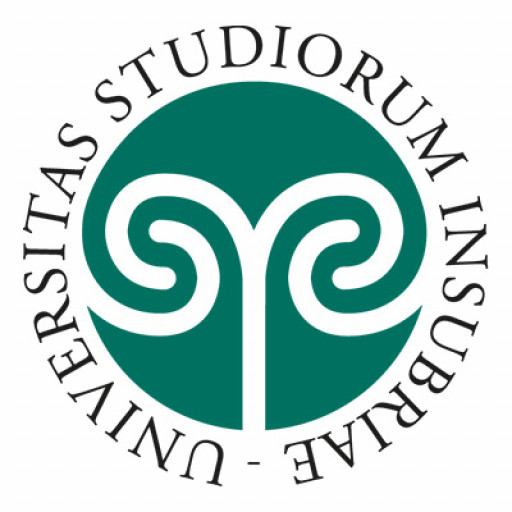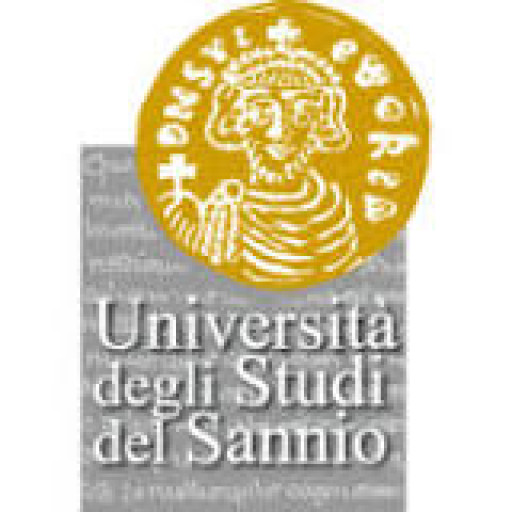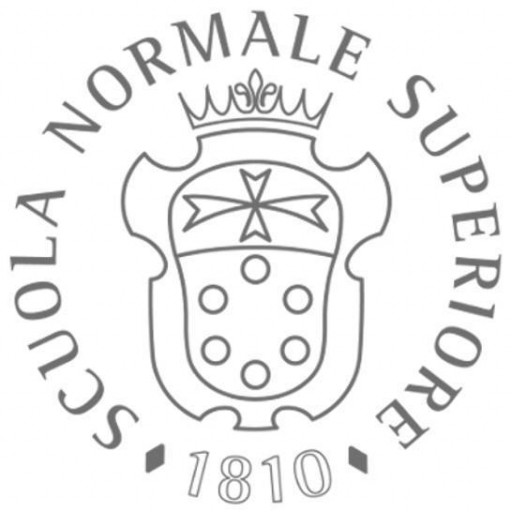Photos of university / #newcastleuni
Description
This degree covers plants, animals and micro-organisms, with a strong focus on biomolecules, organelles and cells, and how they all contribute to the function of organisms as a whole.
You have the option to take a year-long work placement in a commercial or government setting, providing you with invaluable work experience to boost your employability.
You will develop the scientific skills required by professional biologists through lab-based sessions, including a specialist week-long laboratory workshop. You'll also enjoy a range of daytrips and residential field courses.
In the first year all our students study the same fundamental topics in biology, such as plant biology, microbiology and ecology. In later Stages, you will study specialist topics such as:
- molecular biology and development
- biotechnology
- immunology
- bioremediation
Quality and ranking
Biological Sciences at Newcastle ranks in the top 150 universities in the world in the QS World University Rankings by Subject 2014.
The quality of the Biology study experience at Newcastle is recognised with an overall satisfaction score of 92% in the National Student Survey 2013.
Detailed Course Facts
Application deadline January 15 Tuition fee- GBP 9000 Year (EEA)
- GBP 15490 Year (Non-EEA)
Duration full-time 36 months Languages Take an IELTS test
- English
Course Content
Our degrees are divided into Stages. Each Stage lasts for an academic year and you need to complete modules totalling 120 credits by the end of each Stage.
Please be aware that programme modules do change and therefore may differ for your year of entry.
Stage 1
Compulsory modules
- ACE1013 Introduction to Genetics
- BIO1001 Cell Biology 1
- BIO1002 The Animal Kingdom
- BIO1003 Plant Biology 1
- BIO1004 Microbiology 1
- BIO1005 Evolution
- BIO1006 Ecology 1
- BIO1010 Biology In Action
- BIO1019 Introductory Biochemistry for Biologists
Optional modules
You take one module from the following list:
- ACE1022 Crop Pests
- BIO1007 Introduction to Marine Vertebrates
- PSY1006 Instinct, Learning and Motivation
You may have the flexibility to choose an alternative optional module from the wider University.
This first year is shared with Biology (C100), Biology (Ecology and Environmental Biology) (C180)and Zoology (C300), allowing for easy transfer to any of these before second year should your interests change.
Stage 2
Compulsory modules
- ACE2034 Introduction to Immunology
- BIO2004 Plant Biology 2
- BIO2014 Animal Physiology
- BIO2015 Biotechnology 1
- BIO2017 Microbiology 2
- BIO2020 Experimental Design and Statistics for Biologists
- BIO2022 Molecular Biology and Development
- BIO2023 Cell Biology 2
Optional modules
You take three modules from the following list:
- ACE2031 Animal Parasitology
- ACE2041 Food Microbiology
- BIO2008 Evolutional and Population Genetics
- BIO2018 Pollution of Air, Water and Soil 1
- BIO2021 Vocational Placement for Biologists
Placement year (optional)
You may choose to spend the year between Stages 2 and 3 on a work placement, extending your degree to four years. This may take you into a commercial company (eg MedImmune, GlaxoSmithKline) or a government laboratory (eg NHS), substantially improving your employability through real workplace experience.
Stage 3
Compulsory modules
- BIO3018 Biotechnology 2
- BIO3019 Genomics
- BIO3020 Bioremediation
- BIO3021 Laboratory Workshop
- BIO3023 Plant Pathology
- BIO3032 Cell Biology 3
Optional modules
You choose one module from the following list:
- BIO3194 Biological Literature Review OR
- BIO3195 Biological Information Project OR
- BIO3196 Biological Research Project
You choose three modules from the following list:
- BIO3001 Animal Ecophysiology
- BIO3004 Plant Biology 3
- BIO3006 Plant-Animal Interactions
- BIO3030 Antimicrobial Drug Discovery
- BIO3033 Placement Report for Biologists
- SUG3500 Creativity and Market Research in Science and Engineering
English Language Requirements
IELTS band : 6.5 TOEFL iBT® test : 90
To study at this university, you have to speak English. We advice you to
take an IELTS test. More About IELTSRequirements
All candidates are considered on an individual basis. If your qualifications are not listed here, please see our additional entry requirements web pages to find out which other qualifications are considered.
- A Levels
AAB-ABB including Biology and normally another science subject but excluding General Studies. Chemistry is preferred at A or AS level, but not essential. GCSE Mathematics minimum grade B if not offered at A or AS level.- Scottish Qualifications
AAABB-AABBB at Higher Grade including two science subjects. Advanced Higher Biology and another science subject normally required. Higher Grade Chemistry desirable.- International Baccalaureate
35 points normally including Higher Level Biology at grade 6 or above. Chemistry is preferred at Higher Level but not essential. Mathematics or Mathematical Studies and Chemistry required at Standard Level grade 5 if not offered at Higher Level.- Irish Leaving Certificate
A1A1A1B1B-A1A1B1B1B at Higher level, preferably including Biology, Mathematics and another science subject.- Access Qualifications
A unit in Biological Sciences is essential and units in Chemistry, Mathematics or Quantitative Methods desirable. At least 30 level 3 credits at Distinction and in addition at least 15 level 3 credits at a minimum of Merit.- BTEC Level 5 HND
Applicants will be considered on an individual basis.- BTEC Level 3 Extended Diploma (formerly BTEC National Diploma)
A science-related subject with substantial biology and chemistry units at overall DDD grade.- Cambridge Pre-U
D3,D3,M2-D3,M2,M2 in Principal Subjects including Biology and normally another science subject. Chemistry is preferred, but not essential. GCSE Mathematics minimum grade B if not offered at a higher level.- PARTNERS - A Levels
BBC including Biology and normally another science subject but excluding General Studies. Chemistry is preferred at A/AS level but not essential. Mathematics required at GCSE (minimum grade B) if not offered at A/AS level.
The PARTNERS Programme is Newcastle Universitys supported entry route for students from identified schools and colleges. Find out more about the PARTNERS Programme.
- PARTNERS - BTEC Level 3 Extended Diploma (formerly BTEC National Diploma)
A science-related subject with substantial biology and chemistry units at overall DMM-MMM grade.
The PARTNERS Programme is Newcastle Universitys supported entry route for students from identified schools and colleges. Find out more about the PARTNERS Programme.
- English Language Requirements
For this degree you will need a minimum score of IELTS 6.5 or equivalent.
Visit our International Students webpages to find out more about our English language admission requirements and English language support courses offered by INTO Newcastle University.
- International Foundation Programmes
If you are an international student and you do not meet the academic and English language requirements specified above, you should consider a preparation course at INTO Newcastle University, which will help to prepare you for study on this degree course. INTO Newcastle University is based on the University campus and offers a range of courses including the International Foundation in Biological and Biomedical Sciences.
Work Experience
No work experience is required.
The financing of the Cellular and Molecular Biology undergraduate program at Newcastle University Medicine Malaysia is structured to provide accessible and comprehensive financial support options for both domestic and international students. The program's tuition fees are set in accordance with university policies and are periodically reviewed to reflect economic changes and institutional needs. Students are encouraged to explore a variety of funding sources, including scholarships, bursaries, and financial aid programs offered directly by Newcastle University Malaysia as well as external organizations. Scholarships may be merit-based, awarded for academic excellence, or need-based, aimed at supporting students from financially disadvantaged backgrounds. Additionally, students can access government funding schemes, private sponsorships, and educational loans, depending on their individual circumstances and eligibility. International students are also advised to seek out specific visa-related financial guidance to ensure compliance with Malaysian immigration regulations, which may include proof of sufficient funds for the duration of their studies. The university's financial support services provide detailed counseling and application assistance to maximize students’ opportunities to secure funding. Furthermore, the program encourages students to consider part-time employment options permitted under Malaysian regulations, which can supplement their income while gaining valuable work experience. All these arrangements aim to minimize financial barriers to education, thereby enabling talented students to fully engage with the curriculum and research opportunities offered within the program. The university remains committed to ensuring transparency and fairness in its financial policies, regularly updating students about available funding options. Overall, the financing framework for this program is designed to support students financially throughout their academic journey, promoting academic success and enabling them to focus on their studies in Cellular and Molecular Biology without undue economic stress.
The Bachelor of Science in Cellular and Molecular Biology at Newcastle University Medicine Malaysia is a comprehensive undergraduate program designed to provide students with a solid foundation in the biological sciences, focusing specifically on the cellular and molecular mechanisms that underpin life processes. This programme aims to equip students with both theoretical knowledge and practical skills necessary for careers in biomedical research, healthcare, biotechnology, and related fields. The curriculum typically covers a wide range of subjects including cell biology, genetics, biochemistry, microbiology, developmental biology, and molecular biology, ensuring that graduates have a holistic understanding of the biological sciences. Students are also exposed to laboratory techniques, research methodologies, and analytical skills essential for scientific investigation. The programme emphasizes critical thinking, problem-solving, and data analysis to prepare students for real-world scientific challenges. Throughout the course, students may have opportunities for internships, research projects, and collaborations with industry partners, which enhance their learning experience and employability. The programme is delivered by experienced faculty members with expertise in various biomedical disciplines, ensuring high-quality education and mentorship. Upon graduation, students are well-positioned for further study at postgraduate levels or for entry into the biomedical industry, research institutions, or healthcare sectors. The degree also aims to contribute to advancements in medical and molecular research, supporting Malaysia’s and the region’s development in health sciences. With modern research facilities and a collaborative learning environment, Newcastle University Medicine Malaysia strives to produce graduates who are both knowledgeable and skilled, ready to make impactful contributions to science and society.










